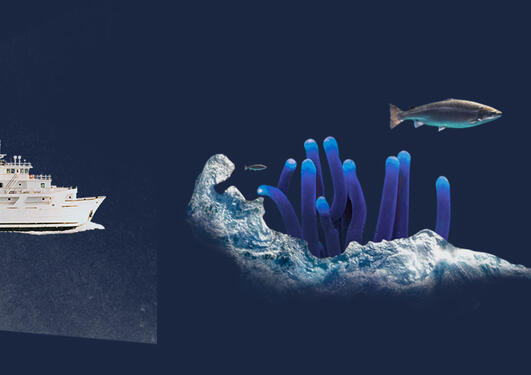Research possibilities for the SEAS postdoctoral research fellow in physical fjord oceanography
The information on this page is a supplement to the complete advertisement of the position in the recruitment-portal Jobbnorge. The full advertisement of this position in Jobbnorge will be available after august 1, and linked from this webpage. Call deadline is October 31, 2021.
Main content
Position | SEAS postdoctoral research fellow at Geophysical Institute |
Research area | The effect of climate change and anthropogenic forcing on the physical and biogeochemical environment in sill-fjord basins |
Supervisor | Associate Professor Elin Darelius |
Mobility | For an incoming candidate |
Unit of employment | Geophysical Institute at University of Bergen |
Group affiliation(s) | Physical oceanography group/Bjerknes Centre for Climate Research |
Thematic area and supervisor
This position is connected to the physical oceanography group at the Geophysical Institute, UiB and offers the possibility to do research on processes influencing the physical and geo-bio-chemical environment in fjord basins. The position is open to an incoming candidate, see mobility rules. The successful candidate will be employed at the Geophysical Institute, University of Bergen and included in a multi-disciplinary group working on fjord environment within the Bjerknes Centre for Climate Research. Information about the supervisor, research group and research possibilities for the fellow is available below. For further details about the research possibilities please contact Associate Professor Elin Darelius.
Research possibilities and resources
Background: The Norwegian coast is cross-cut by steep-sided fjords, that reaches far inland and whose deep basins are isolated from the open ocean by one or many sills (Gade and Edwards 1980). The anthropogenic pressure on the fjords is increasing (Johansen et al. 2018), and there are repeated reports on deteriorating conditions and hypoxia in the deep fjord basins (Aksnes et al. 2019). Meanwhile, climate trends in the off-shore waters affect how these deep basin waters are renewed (Aksnes et al. 2019; Darelius 2020). To sustainably manage our fjords, we need to improve our understanding of the physical processes relevant for deep water renewal and of how and why the physical and biogeochemical environment are, have been and will be changing. The emerging fjord-team within the Geophysical Institute, UiB, the Institute of Marine Research and the Bjerknes Centre for Climate Research are aiming to supervise a postdoctoral fellow who can contribute answer the overarching question “How will climate change influence the carrying capacity of Norwegian sill-fjords”.
Research opportunities and infrastructure: (1) Possibilities for field studies and data collection (e.g., moorings, CTD, microstructure profiling, biogeochemicalsampling) in local fjords (in connection to UiB-student cruises and monitoring activity carried out by the Institute of Marine Research). (2) Access to state-of-the-art numerical models for fjord and coastal processes studies (3) Integration in a multi-disciplinary research group within the Bjerknes Centre for Climate Research, including biogeochemistry (ocean acidification), paleo (reconstructions of fjord environment in the recent past), marine biology (effects of hypoxia on fish).
The supervising team: Ass. Prof. E. Darelius is a physical oceanographer with extensive experience from oceanographic fieldwork and observation-based research. She has been working with shelf- and slope processes affecting the heat transport towards Antarctic ice shelves, but has a growing interest in fjords and deep water renewal following her involvement in the fjord oceanography course at GFI, UiB. Senior Researcher M. Myksvoll is a physical oceanographer and an expert in numerical modelling of the fjord environment. Myksvoll is employed at the Institute of Marine Research and has an Ass. Prof. II position at UiB where she teaches fjord oceanography. Prof. A. Olsen is an expert in ocean biogeochemistry, specializing in ocean acidification and observations thereof.
Inter-sectoral possibilities include, e.g., the aquaculture industry, Bergen municipality, the Directorate of Fisheries (Fiskeridirektoratet), the Norwegian Food Safety Authority (Mattilsynet), consultancy firms involved in fjord environment monitoring. The Institute of Marine Research, which carries out research and gives knowledge-based advice to the Norwegian government, has experience from intersectoral work.
International collaboration possibilities include e.g., Fiskaalin (Faroese Islands), University of Conception (Chile), University of Melbourne (Australia).
Societal impact of research project: The project has the potential to assess the impacts of climate change on sustainable development of the Norwegian fjords and to be relevant for spatial planning and sustainable use of the coastal zone.
See the full advertisement in Jobbnorge
The full advertisement in Jobbnorge will be available after august 1, 2021. Call deadline is October 31, 2021.
